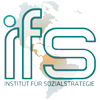Religionen im Kontext globaler Zivilgesellschaft
Das Institut für Sozialstrategie sieht Religionen als prägenden Einfluss auf die Weltdeutung und das Lebensgefühl der meisten Menschen weltweit. Es erkennt die Unterschiedlichkeit der Religionen und der mit ihnen verbundenen Lebensformen auch dort an, wo Religionen Wahrheits- und Geltungsansprüche formulieren, die in Konflikt mit zeitgenössischen Strömungen geraten können. Aus dem Interesse für ein gelingendes globales Zusammenleben spricht sich das Institut für die Suche nach Formen eines friedlichen Dialogs zwischen Religionen in einem demokratischen Kontext aus.
Für Deutschland fordert das Institut die Einrichtung eines gemeinsamen Rats der Religionen. Ziel einer solchen Einrichtung ist die Beratung aktueller religionspolitischer Fragen von der Burka bis zum Schächten, von der Sonntagsruhe bis zum Kirchensteuereinzug durch den Staat. Wenn Religionsvertreter gemeinsam beraten, welche Freiheiten sie in einem demokratischen Staat fordern und welche Spielregeln im Interesse aller beachtet werden sollten, dann kann ein solcher Rat der Religionen ein wesentlicher Partner der Gesetzgebung werden und zum Zusammenleben einer religiös pluralistischen Gesellschaft beitragen.
Da in vielen Ländern sowohl Anhänger „großer“ Religionen wie religiöse Minderheiten leben, empfiehlt das Institut für Sozialstrategie die Ergänzung des Rats der Religionen durch einen „Rat der religiösen Minderheiten“ auch dann, wenn es für solche Minderheiten nur in bestimmten, für alle wesentlichen Fällen möglich sein wird, zu einer gemeinsamen Position zu gelangen.
Darüber hinaus steht das Institut für Sozialstrategie für universelle Religionsfreiheit. Es fordert daher die Aufhebung der Diskriminierung religiöser Minderheiten in mehrheitlich islamisch, christlich oder anderweitig religiös geprägten Ländern. Diese Forderung umfasst z.B. das Recht von Muslimen auf ihre eigene religiöse Praxis in Deutschland und Europa ebenso wie das Recht von Christen, ihren Glauben in mehrheitlich muslimischen Ländern offen und diskriminierungsfrei zu leben.
Anprechpartner
Thomas de Nocker
Letzte Veröffentlichungen
- Wie gelingt gutes Zusammenleben der Religionen?
 Abstract [en]: How can we achieve a good co-existence of religions? This issue is highly important, also in view of … Weiterlesen: Wie gelingt gutes Zusammenleben der Religionen?
Abstract [en]: How can we achieve a good co-existence of religions? This issue is highly important, also in view of … Weiterlesen: Wie gelingt gutes Zusammenleben der Religionen? - Ist die Christliche Soziallehre in einer digitalen Welt zukunftsfähig?
 Abstract [de]: Die ungeheuer schnelle Veränderung aller Lebensverhältnisse im Zug der digitalen Transformation stellt uns vor die Frage nach der … Weiterlesen: Ist die Christliche Soziallehre in einer digitalen Welt zukunftsfähig?
Abstract [de]: Die ungeheuer schnelle Veränderung aller Lebensverhältnisse im Zug der digitalen Transformation stellt uns vor die Frage nach der … Weiterlesen: Ist die Christliche Soziallehre in einer digitalen Welt zukunftsfähig? - Kirchenfinanzen
 Abstract [en]: The discussion about the levying of church tax in Germany has been subject of constitutional, canonical, systematic and … Weiterlesen: Kirchenfinanzen
Abstract [en]: The discussion about the levying of church tax in Germany has been subject of constitutional, canonical, systematic and … Weiterlesen: Kirchenfinanzen - Wie das Evangelium im Zeitalter der Wissensarbeit eine neue Chance bekommt
 Abstract [en]: In the future, work will mainly be work on the human being and work with knowledge between humans. … Weiterlesen: Wie das Evangelium im Zeitalter der Wissensarbeit eine neue Chance bekommt
Abstract [en]: In the future, work will mainly be work on the human being and work with knowledge between humans. … Weiterlesen: Wie das Evangelium im Zeitalter der Wissensarbeit eine neue Chance bekommt - Der Codex Iuris Canonici als Grundlage für ein Risikomanagementsystem und Compliance Management System in der Katholischen Kirche
 Abstract [en]: In view of financial scandals like that of the Diocese Limburg there is a question to be asked about … Weiterlesen: Der Codex Iuris Canonici als Grundlage für ein Risikomanagementsystem und Compliance Management System in der Katholischen Kirche
Abstract [en]: In view of financial scandals like that of the Diocese Limburg there is a question to be asked about … Weiterlesen: Der Codex Iuris Canonici als Grundlage für ein Risikomanagementsystem und Compliance Management System in der Katholischen Kirche - The promise of a global ethic in the Brazilian contexto
 Abstract [en]: This article intends to confront the main principles in the global ethic project and the current data about … Weiterlesen: The promise of a global ethic in the Brazilian contexto
Abstract [en]: This article intends to confront the main principles in the global ethic project and the current data about … Weiterlesen: The promise of a global ethic in the Brazilian contexto - Lernimpulse aus der Bundeswehr
 Abstract [en]: The German Federal Armed Forces (Bundeswehr) and the German Catholic church both are large scale institutions who as … Weiterlesen: Lernimpulse aus der Bundeswehr
Abstract [en]: The German Federal Armed Forces (Bundeswehr) and the German Catholic church both are large scale institutions who as … Weiterlesen: Lernimpulse aus der Bundeswehr - Interreligiöse Kompetenz
 PRESSEMITTEILUNG: Juni 2017 Juni 2017 Interreligiöse Kompetenz Interdisziplinäre Fachtagung am 29. und 30. Juni im Weltethos-Institut in Tübingen Moderne Gesellschaften … Weiterlesen: Interreligiöse Kompetenz
PRESSEMITTEILUNG: Juni 2017 Juni 2017 Interreligiöse Kompetenz Interdisziplinäre Fachtagung am 29. und 30. Juni im Weltethos-Institut in Tübingen Moderne Gesellschaften … Weiterlesen: Interreligiöse Kompetenz - Die Papst Franziskus Formel. Ein neuer Zugang zum Dritten Weg der Katholischen Soziallehre
 Abstract [en]: Since many years in Argentina Pope Francis has developed and successfully used his very personal method to build … Weiterlesen: Die Papst Franziskus Formel. Ein neuer Zugang zum Dritten Weg der Katholischen Soziallehre
Abstract [en]: Since many years in Argentina Pope Francis has developed and successfully used his very personal method to build … Weiterlesen: Die Papst Franziskus Formel. Ein neuer Zugang zum Dritten Weg der Katholischen Soziallehre - Repression im Zeichen der „Toleranz“
 Abstract [en]: The aggressive demand for tolerance is less and less a procedural rule on how to deal with disagreements … Weiterlesen: Repression im Zeichen der „Toleranz“
Abstract [en]: The aggressive demand for tolerance is less and less a procedural rule on how to deal with disagreements … Weiterlesen: Repression im Zeichen der „Toleranz“
